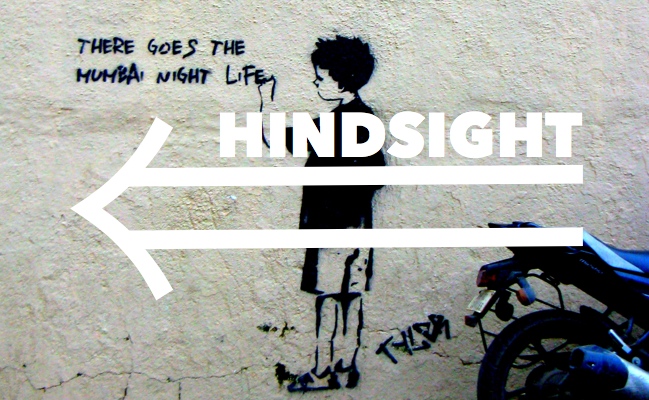Hindsight 2: The iRevolution Will Not be Televised

Hindsight 2 — September 2 - 8, 2012
It wasn’t easy to set aside the week’s biggest news and take myself back to September 2012, but once I did it reminded me why I started this project in the first place. I missed each of the stories below when they were originally published this week last year, probably because I was devouring every last nibble of campaign trail nonsense.
My focus in the present is on potential US involvement in Syria. Looking back on this week next year, who knows what will have passed me by as I mire in (admittedly consequential) current events. It was nice to shift my attention away from the stories that attract the most noise.
So enjoy this collection of four stories from last year and one that’s a decade old. I sure did.
You can subscribe just to Hindsight posts or to the full feed of the candler blog.
Hindsight 2 — September 2 - 8, 2012
“The House That Hova Built” by Zadie Smith, The New York Times, September 6, 2012
The rapper Memphis Bleek, who has known Jay-Z since Bleek himself was 14, confirms this impression: “He had a sense of calm way before music. This was Jay’s plan from day one: to take over. I guess that’s why he smiles and is so calm, ’cause he did exactly what he planned in the ’90s.” And now, by virtue of being 42 and not dead, he can claim his own unique selling proposition: he’s an artist as old as his art form. The two have grown up together.
The best bits in Zadie Smith’s profile aren’t about Jay Z1 at all; they’re about hip-hop and America.
“At sea for science” by Maggie Koerth-Baker, Boing Boing, September 5, 2012
In a lot of ways, the Joides Resolution is like the research stations in Antarctica. Truly an international effort—“more international than the International Space Station,” as Richard Norris put it—it’s also interdisciplinary. Scientists literally cannot do this kind of work on their own. In order for a science team of 30-some people to function, they have to work alongside 20 technicians and more than 70 crew members, including cooks, electricians, and welders. It creates a different sort of community and a different sort of environment than what you’d find in a lab on land.
Lab culture is an interesting enough beast on dry land. I can hardly imagine what it’s like at sea, but then again I get impatient on ferry rides. Maggie Koerth-Baker talks to the crew of the Joides Resolution about their expedition in a one hour podcast.
“Reporting Poverty” by Emily Brennan, Guernica, September 4, 2012
In my kind of work, you don’t parachute in after some big, terrible event, which is important and has to be covered, but offers only a glimpse. It’s the kind of work in which you ask, what is my understanding of how the world works, and where can I go to see these questions get worked out in individuals’ lives?
The journalist Katherine Boo talks about her process with Emily Brennan and about her reporting from a Mumbai slum. I especially like her take, later, on the ethics of reporting on the plight of others to sell magazines: “…if writing about people who are not yourself is illegitimate, then the only legitimate work is autobiography; and as a reader and a citizen, I don’t want to live in that world.”
“Why didn’t CNN’s international arm air its own documentary on Bahrain’s Arab Spring repression?” by Glenn Greenwald, The Guardian, September 4, 2012
On 19 June 2011 at 8pm, CNN’s domestic outlet in the US aired “iRevolution” for the first and only time. The program received prestigious journalism awards, including a 2012 Gold Medal from New York Festival’s Best TV and Films. […]
Despite these accolades, and despite the dangers their own journalists and their sources endured to produce it, CNN International (CNNi) never broadcast the documentary. Even in the face of numerous inquiries and complaints from their own employees inside CNN, it continued to refuse to broadcast the program or even provide any explanation for the decision. To date, this documentary has never aired on CNNi.
Glenn Greenwald became a household name over the summer with his continuing coverage of former Edward Snowden’s cache of NSA documents, but he has been relentlessly been covering government and media hypocrisy for years. Dollars to doughnuts much of the criticism Greenwald receives from other journalists is directly related to pieces like this one. Further Reading: The same day as the above article, Greenwald dove deep into CNN’s government sponsorships and the seemingly better coverage a regime can buy with it.
Further Back
“One More Vital Pagan Orgy / Sex, drugs and glow sticks: Our columnist survives yet another Burning Man, perspective intact” by Mark Morford, SFGate, September 3, 2003
OK look. Burning Man is not an orgy. It’s not a sweetly blasphemous pagan love-fest. It’s not a giant drunken drug-addled overly hot week-long rave party with lots of beer and margaritas and bikes and exposed nipples and unshowered flesh and flashing shiny things and dust and crazy nouveau idealistic neo-hippies and breathtaking starlight. Not solely, anyway.
Mark just filed a story from his “10th burn” yesterday. Odd that he now recommends downloading an iOS app for the fest he described a decade ago as an “art-filled dust-drunk city in the middle of nowhere sans money sans phones sans work sans rules…”
Photo Credit: “Mumbai graffiti”, Lindsay Loebig, September 6, 2012
-
The Web went nuts this summer over Hova dropping his hyphen so he’ll be Jay Z from here on out. ↩︎